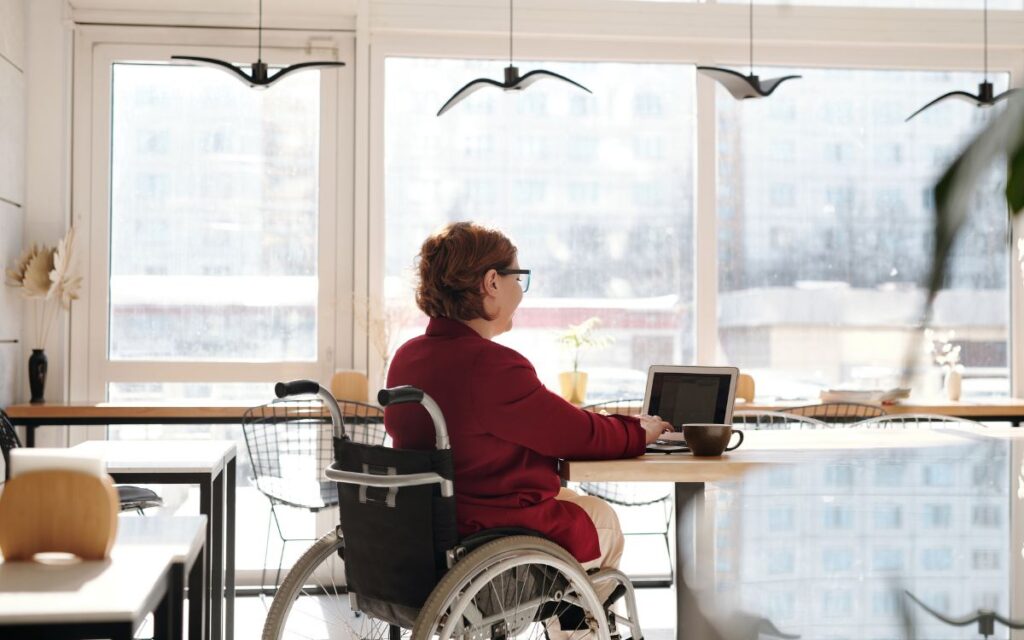Currently, around 2.7 million U.S. adults use wheelchairs, and as the Baby Boomer generation ages, this number is expected to grow. Wheelchair manufacturers are under pressure to enhance their products to accommodate this market. Since Boomers are well-known for having strong opinions as well as being affluentenough to afford the features they want, the wheelchair industry is constantly considering new ways to improve comfort and convenience, including the development of advanced wheelchair cushions.
Wheelchair Seating Requirements
Sitting in a wheelchair all day isn’t fun, but it’s worse for patients if they find it uncomfortable. Insufficient back support is problematic at the best of times, so posture control is a critical factor in ensuring the suitability of a seat. Pressure relief is another essential component. Immobility and incontinence both put patients at risk for pressure sores, which can become a serious health concern.
Seats that relieve the pressure of sitting and provide stability for users are vital for high-quality wheelchairs.
Types of Wheelchair Cushions
As a result of the challenges experienced by wheelchair users, here are some of the seating and positioning options for suppliers of mobility devices to consider when ordering new equipment for sale to customers.
Pressure Reduction Cushions
These must be soft enough to support the user’s shape, yet solid enough to prevent the user from sinking to the surface of the seat. There are three types of pressure reduction cushions, namely:
- High-density foam cushions: These are typically manufactured from high-density urethane foam molding to create a soft, pliable texture. At Midwest Rubber Company, our use of foam rather than liquid material makes this process unique. We make forms from aluminum or flexible silicone, into which we insert the foam and colorants. The product is left to solidify, then removed from the form and sent for finishing.
- Air cushions: This type of cushion delivers the highest level of pressure reduction possible. An air cushion allows the user to sink most of the way through the cushion without bottoming out. This enables the distribution of the patient’s weight over a larger area, preventing the development of pressure sores. Air cushions are made in several ways, including thermoset rubber or injection molding processes.
Positioning Cushions
Wheelchair cushions used for positioning are usually aggressively contoured. While many positioning cushions provide excellent pressure relief, their main purpose is to enable the patient to sit as comfortably as possible. These cushions can be customized to meet the needs of patients with more complex seating issues by cutting or carving the bases or adding components. High-quality position support cushions are typically made with high density foam.
Specialty Cushions
Patients with particular needs often require wheelchairs equipped with specialty cushions such as adaptive pads, which are used to provide additional support in specific areas. These can be made from rubber or urethane foam, depending on the purpose, and used as cushioning for arms, legs, heads, splints, or braces.
Benefits of Urethane Foam for Wheelchair Cushions
Urethane foam molding is an optimal, cost-effective process that delivers light, flexible wheelchair seating components for mobility equipment manufacturers. By using foam for wheelchair seating and positioning requirements, Midwest Rubber Company guarantees the reliability and accuracy of our products. Production is fast because, aside from any branding needs, the amount of finishing work required after curing is minimal.
The design of custom contoured cushions manufactured in flexible polyurethane foams offers the opportunity to improve positioning and comfort for people with disabilities, who spend most of the day seated in the same position. At Midwest Rubber Company, we work with you to design innovative ways to accommodate the requirements of your customers’ requirements and commit to ensuring your satisfaction with the process and the materials used.
For more information on using urethane foam molding for wheelchair cushions or other aspects of mobility equipment manufacturing, please contact us at 810.376.2085.
